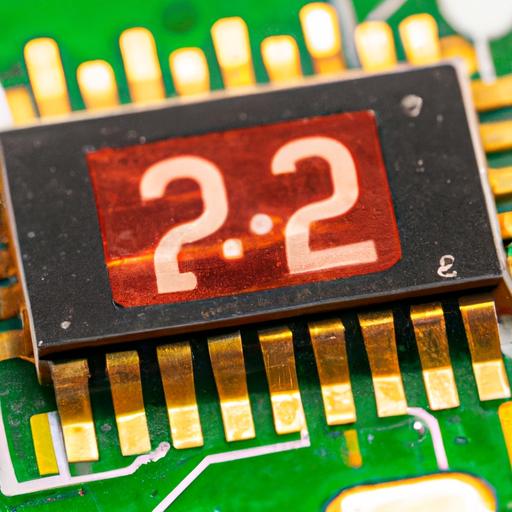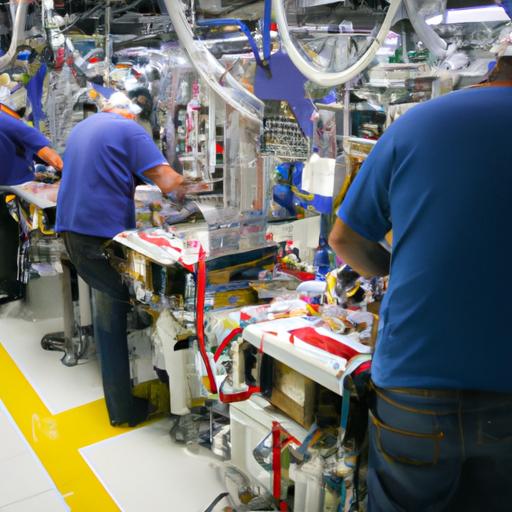How Do Slot Machines Really Work? A Comprehensive Guide
Introduction

Have you ever wondered how slot machines work? As one of the most popular casino games, slot machines have been around for over a century. But do you really know how they operate, or are you just pushing buttons and hoping for the best?
Understanding how slot machines work is essential for anyone who wants to play responsibly and maximize their chances of winning. In this comprehensive guide, we’ll take a closer look at the inner workings of slot machines and explore how they’re made, programmed, and operated.
The History of Slot Machines

Slot machines were first introduced in the late 19th century as a mechanical device that used reels and symbols to create a game of chance. The original machines were simple and straightforward, with only three reels and a handful of symbols.
Over the years, slot machines have evolved and become more sophisticated, incorporating new technologies like video screens, digital displays, and random number generators.
The Importance of Understanding How Slot Machines Work
While slot machines may seem like a game of luck, there’s actually a lot more going on behind the scenes. Understanding how slot machines work can help you make more informed decisions when playing and increase your chances of winning.
By knowing how slot machines are programmed and how the odds are calculated, you can make smarter bets and avoid losing money unnecessarily. Plus, understanding the technology behind slot machines can help you appreciate the incredible engineering and design that goes into creating these complex machines.
Anatomy of a Slot Machine
Slot machines consist of several physical components that work together to create a game of chance. Here’s a closer look at each of these components and their functions:
Reels
The most recognizable part of a slot machine is the reels, which are typically three or five in number. Each reel contains a series of symbols that are used to determine the game outcome. When the player pulls the lever or presses the button, the reels spin and eventually come to a stop, revealing a combination of symbols.
Paylines
Paylines are the lines that run across the reels, connecting the symbols and determining the winning combinations. Different slot machines can have different numbers of paylines, from just one to over 100. Some slot machines also allow players to choose which paylines to activate, while others require all paylines to be played.
Bet Buttons
Bet buttons are used to place a wager on each spin of the reels. Players can choose the size of their bet by using the +/- buttons or selecting a specific denomination. The amount of the bet will determine the size of the potential payout.
Random Number Generator (RNG)
The heart of every slot machine is the Random Number Generator (RNG), which is responsible for determining the game outcome. The RNG is a complex algorithm that generates a sequence of random numbers, which are used to determine the position of the reels and the symbols that appear on them.
Payout Table
The payout table is a chart that shows the different winning combinations and the corresponding payouts. The payouts can vary depending on the size of the bet and the number of paylines played. Understanding the payout table is essential for making informed betting decisions and maximizing your chances of winning.
Programming of Slot Machines
Slot machines may seem like a game of pure chance, but they’re actually carefully programmed to ensure that the odds are always in the casino’s favor. Understanding how slot machines are programmed can help you make more informed decisions when playing and give you a better appreciation for the technology behind these machines.
Random Number Generator (RNG) and Its Function
At the heart of every slot machine is a Random Number Generator (RNG), a computer program that generates a sequence of random numbers. The RNG is constantly running in the background, even when the machine is not being played.
When a player places a bet and spins the reels, the RNG selects a random number for each reel and maps that number to a symbol on the reel. The symbols that appear on the screen are determined entirely by the random numbers generated by the RNG.
How the RNG Determines Game Outcomes
The RNG is designed to produce a completely random and unpredictable sequence of numbers. This ensures that each spin of the reels is independent of all previous spins and has an equal chance of resulting in a winning or losing outcome.
The odds of winning on a slot machine are determined by the number of symbols on each reel and the number of times each symbol appears on the reel. The more times a symbol appears on a reel, the less likely it is to be selected by the RNG and the lower the odds of winning.
Importance of Testing and Certification of Slot Machines
To ensure that slot machines are fair and operate according to the rules, they must be tested and certified by independent third-party organizations. These organizations, known as testing labs, use sophisticated equipment and algorithms to test the RNG and ensure that it produces truly random and unbiased outcomes.
Testing and certification is a critical step in the manufacturing process of slot machines, and ensures that players can trust that the games they are playing are fair and legitimate. Without this oversight, there would be no way to ensure that casinos are not rigging the games in their favor.
Making of Slot Machines
Slot machines are complex pieces of machinery that require a high level of precision and attention to detail during the manufacturing process. Here’s a closer look at how slot machines are made:
Manufacturing Process of Slot Machines
The manufacturing process of slot machines involves several stages, from design and prototyping to production and assembly. The first step is to create a design for the machine, which includes the physical components, electrical systems, and software.
Once the design is finalized, the manufacturer creates a prototype of the machine to test its functionality and identify any issues that need to be addressed. Once the prototype is approved, the manufacturer can begin mass-producing the machines.
During production, each component of the machine is carefully crafted and tested to ensure that it meets the highest standards of quality and durability. This includes everything from the metal casing to the electronic components and software.
Importance of Quality Control in the Production of Slot Machines
Quality control is a crucial part of the manufacturing process for slot machines. Every machine must be thoroughly tested and inspected to ensure that it operates correctly and meets all necessary regulatory requirements.
Manufacturers use a variety of testing methods to ensure that the machines are working properly, including random number generator testing, hardware testing, and software testing. Additionally, regulatory bodies like the Gaming Commission may conduct their own testing and inspections to ensure that the machines are fair and reliable.
Modern Advancements in Slot Machine Technology
Over the years, slot machine technology has advanced significantly, leading to the development of new and exciting games with immersive graphics and engaging gameplay. Modern machines feature high-definition screens, sophisticated sound systems, and advanced software that can generate complex game outcomes.
Manufacturers are also incorporating new technologies like virtual reality and augmented reality to create even more immersive gaming experiences. These advancements are helping to keep slot machines relevant and exciting for players of all ages.
Myths and Misconceptions
Slot machines have been the subject of many myths and misconceptions over the years. Some people believe that there are certain tricks or strategies that can help you win at slots, while others think that the machines are rigged in some way. In this section, we’ll explore some of the most common myths and misconceptions about slot machines and separate fact from fiction.
Common Misconceptions About Slot Machines
One of the most common misconceptions about slot machines is that they’re programmed to pay out at certain times. Some people believe that if a machine hasn’t paid out in a while, it’s more likely to pay out soon. However, this simply isn’t true. Slot machines are programmed with a random number generator (RNG) that ensures that every spin is completely random and independent of previous spins.
Another common misconception is that you can manipulate the outcome of a slot machine by pressing the buttons in a certain order or at a certain time. While it’s true that you can control the speed at which you play, there’s no way to influence the outcome of the game.
Debunking Popular Myths About Slot Machines
One of the most persistent myths about slot machines is that they’re rigged in some way to prevent players from winning. However, this simply isn’t true. Slot machines are regulated and tested by independent third-party organizations to ensure that they’re fair and random.
Another popular myth is that certain machines are “hot” or “cold” and more likely to pay out at certain times. However, as we mentioned earlier, slot machines are completely random and independent of previous spins. There’s no way to predict when a machine will pay out or when it will go cold.
Importance of Understanding the Reality of Slot Machines
Understanding the reality of slot machines is important for anyone who wants to play responsibly and enjoy the game for what it is. While it’s true that there’s no way to guarantee a win at slots, there are ways to increase your chances of winning and minimize your losses.
By understanding how slot machines work and debunking common myths and misconceptions, you can make more informed decisions when playing and enjoy the game for what it is: a fun and exciting form of entertainment.
Conclusion
In conclusion, understanding how slot machines work is crucial for anyone who wants to play responsibly and enjoyably. By knowing the inner workings of these complex machines, you can make informed decisions and increase your chances of winning.
We’ve explored the history of slot machines, the anatomy of a slot machine, and the programming and manufacturing process. We’ve also debunked common myths and misconceptions about slot machines.
Remember, slot machines are designed to be entertaining, but they’re also a form of gambling. It’s essential to play responsibly, set a budget, and never chase your losses.
If you’re interested in playing slot machines, be sure to choose a reputable casino and look for machines that have been tested and certified by independent third-party auditors. And always remember, the most important thing is to have fun!